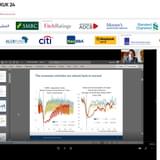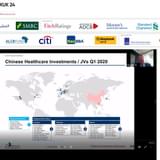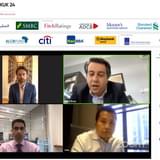As the Chinese government seeks to tighten liquidity in an effort to curb an overheated real estate sector and crack down on shadow banking, Chinese corporates have been stepping up their dollar issuances and breaking the trend for local market preference.
Led by banks and followed by property developers, China’s companies already raised US$55bn in the international markets this year compared with US$21bn at home, according to the Financial Times.
In February, the Hong Kong units of Bank of China and ICBC tapped the offshore bond markets for US$4bn in two- and three-year dollar-denominated deals, while China Construction Bank’s European branch raised €500mn.
According to Greg Saichin, Chief Investment Officer (CIO) Global Emerging Markets Fixed Income with Allianz Global Investor, a significant number of Chinese corporates have used the USD market as an alternative funding source to the CNY bond market.
“Gaining access to the USD bond market is important for many issuers in terms of visibility and ability to build a yield curve. This is particularly important for Chinese SOEs that may become serial issuers in the future.”
The falling dollar has also awakened appetite for dollar debt. According to a report published by Ashmore, “the weakening dollar has significantly reduced FX mismatches”.
Policy Reversal
The report mentions that this is the opposite of what happened in 2015, when the Chinese government allowed the yuan to weaken against the dollar which subsequently pushed Chinese corporations to engage in the repayment of their dollar liabilities.
Saichin believes, however, that some corporates might be taking additional FX risk that should be monitored closely by investors.
“Pricing for these entities is important and has to be competitive against CNY or CNH funding sources. Clearly, some entities may be taking FX risk, and investors should do their due diligence to understand the underlying FX mismatch stemming from USD funding, CNY assets revenue generation and access to hedging.”
This new dynamic will have a direct impact on the country’s reserves, which in April reached US$3bn, rising for the third year in a row, as corporates continued to sell off hard currency to the People’s Bank of China (PBOC).
Still, Saichin warns that might not always be the case, as many companies might choose to keep their dollars offshore.
“Typically, the USD funding would be repatriated onshore, but some companies raising funds through offshore entities (such as those based in Hong Kong) may choose to leave the money offshore to manage USD flows from there. The funds that are brought onshore should accrue to the capital account.”
However, this trend might recede in the second quarter of 2017, especially for real estate developers and construction companies, as Beijing continues its efforts to contain the rising credit bubble.
Will the Crackdown Affect the Capital Markets?
As the government crackdown continues, more and more investors are getting concerned about the impact of this new policy.
Analysts fear that the government is trying to cool off the real estate market at the expense of economic growth that has been fuelled in the recent years by the credit boom. However, these measures are not meant to discourage the capital markets at home.
“Genuine capital market deals are not being discouraged. Most of the liquidity tightening is taking place through PBOC market mechanisms such as raising the repo rates to the banking system. This is to stem the appetite among the shadow banking institutions for leveraged structures, making funding more expensive to them and forcing the unwinding of these transactions. It may not apply at all to USD funding, as I do not believe that there is cross-currency funding channels in place to finance USD bonds,” Saichin concluded.
In the Trump era, if the dollar continues to underperform, regardless of what it is happening at home, 2017 may well become the year for dollar-denominated deals by Chinese corporates.









